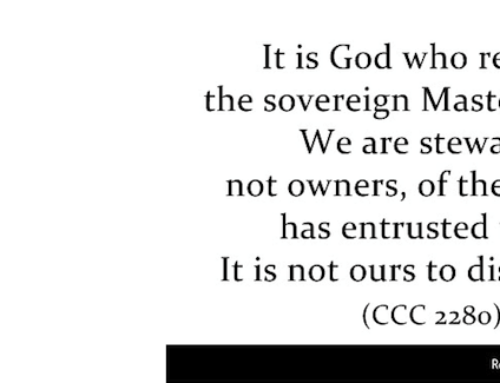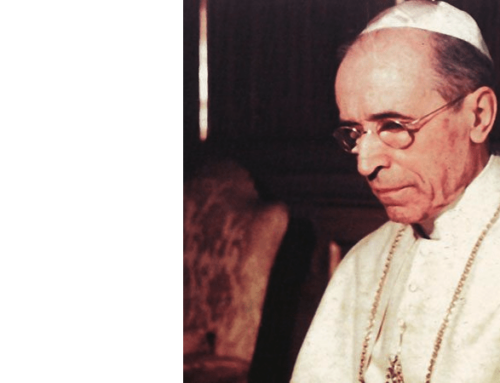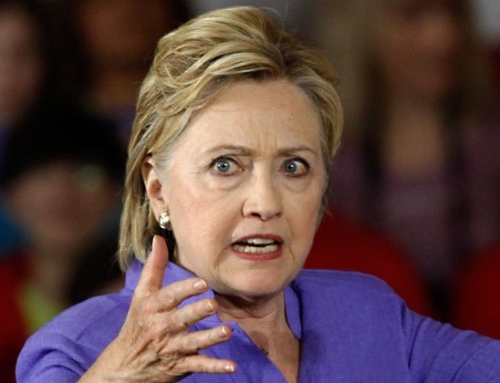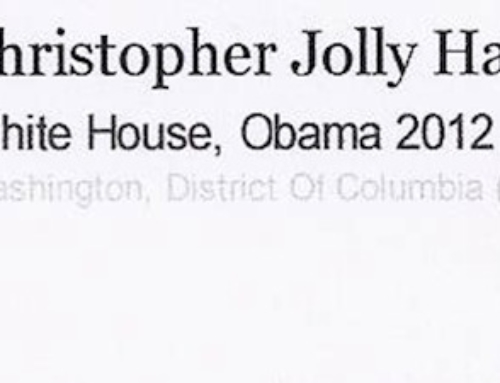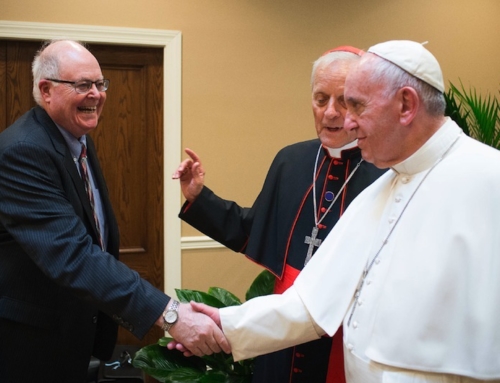by Richard C. Lukas
(Catalyst 5/1998)
On March 16, the Vatican issued a long-awaited document on the Holocaust, “We Remember: A Reflection on the Shoah.” The document was not an apology, but it was a call for repentance. It stated the Church’s understanding of the causes of Hitlerism, the mixed response of Catholics to the Holocaust and the role which Pope Pius XII played in trying to alleviate the suffering of Jews and others.
The response to the document was anything but uniform. Comments ranged from high praise to high condemnation, and many of the remarks were decidedly mixed. There has already been much analysis of the document, as well as commentary on the reactions to it. The Catholic League’s position has been to respond to those editorials, articles and cartoons that it found unfair.
What follows is a select sampling of the varied response to “We Remember” that surfaced from the Jewish community.
“I believe that the Vatican statement is correct in asserting that Nazi antisemitism ‘had its roots outside of Christianity,’ that it was not derived from anti-Jewish doctrines of the church but rather from an ‘exacerbated nationalism’ and a secular ‘pseudo-scientific’ racism. Nazi texts provide no evidence that the antisemitism of Hitler or Himmler was informed by the Christian characterization of the Jews as Christ-killers, condemned by God because they refused to recognize the messiah. Nazi rhetoric is drawn from different realms.”
Marc Saperstein, professor of Jewish history and director of the program in Judaic studies at George Washington University. Source: Washington Post, April 1, 1998.
“It is highly optimistic of the document to say that the anti-Semitism of Nazi ideology has its roots outside of Christianity. It denies centuries of Christian contempt and persecution of Jews and Judaism. It should be remembered that anti-Judaism created the atmosphere for the possibility of pagan anti-Semitism.”
Rabbi Leon Klenicki, director of Interfaith Affairs, Anti-Defamation League. Source: Quoted in Chicago Tribune, March 17, 1998.
“I am sad, sad and deeply disappointed. Tomorrow morning when my Jewish neighbors in my building read the paper, they’ll come to me and say, ‘Didn’t I tell you, they ain’t going to change?’ And they may be right.”
Rabbi Leon Klenicki, director of Interfaith Affairs, Anti-Defamation League. Source: Rabbi Klenicki’s published “Reading” on the document.
“We [Jews] should understand that, if we were in their [Catholic’s] shoes, we might wonder if the dialogue is a bank from which Jews only make withdrawals.”
“The organized Jewish community has to educate our people about the tremendous positive changes in the Catholic Church since Vatican II, three decades ago, and especially under the present Pope. I suspect most Jews do not fully understand, if at all, what progress has been made.
“As we desire more study and expression from the Church on sensitive matters, we too should be forthcoming on issues of concern for them. For example, we might at least discuss, if not re-evaluate, our present positions on school vouchers and partial-birth abortion. Most of all, we should be sensitive to what Catholics perceive as a widespread tendency towards ‘Catholic-bashing’ in American society.
“The Roman Catholic Church is the Jewish people’s best partner in interreligious affairs. It is time for our laity to realize that fact and for our leaders to respond accordingly.”
Rabbi Moses A. Birnbaum, spiritual leader of Plainview Jewish Center in Long Island, and a veteran of interreligious dialogue. Source: Jewish Week, March 27, 1998.
“There are elements in there [the document] that are positive, that hopefully will be picked up and used and made part of Catholic life. And there are some disappointing areas where I think it could have been strengthened greatly.”
Rabbi A. James Rudin, director of interreligious affairs, American Jewish Committee. Source: Quoted in Newsday, March 17, 1998.
“To take 10 years and find absolutely no fault in the role of Pope Pius XII calls into question the seriousness of this document.”
Rabbi Marvin Hier, Simon Wiesenthal Center. Source: Quoted by Richard Z. Chesnoff, Daily News, March 18, 1998.
“They [American Jews] did next to nothing to save the Jews of Europe, and worse, they demonized the Jews and Christians who gave their all to turn FDR. Ben Hecht and Peter Bergson were the Jews who led the fight to save the Jews of Europe. They went after FDR with great advertisements in the press in an effort to awaken the nation to the conspiracy of silence that was burying the Jews.
“The court Jews, led by Rabbi Stephen Wise, FDR’s great buddy, went after Hecht and Bergson, told the Jews of America that ‘these guys’ were the enemies of Jews…. Wise was aided in this endeavor by The New York Times and The Washington Post, both papers owned by Jews. And by one of the top Jews in Congress, Sol Bloom.
“What bothers me as a Jew is the chutzpah of the Jewish leaders. Let them look into their own archives, let them examine what their ancestors didn’t do to save the Jews of Europe. And the same for the Israelis, who have plenty to answer for.”
Sidney Zion, columnist for the Daily News. Source: Daily News, March 30, 1998.
“What’s lacking is taking moral and historical responsibility for Christian anti-Semitism. It [the document] fails to identify the direct link between the church’s historic teachings of contempt toward the Jews and the cultural environment that facilitated the Holocaust.”
Abraham Foxman, director of the Anti-Defamation League. Source: Quoted in New York Post, March 17, 1998.
“It is too little, too late. I have no doubt that the church did not do everything it could have to save people…. [Pius XII’s] silence cost millions of human lives.”
Meir Lau, Israel’s chief rabbi. Source: Quoted in Los Angeles Times, March 17, 1998.
“I expected much more from the Vatican and much more from this Pope. The document took long in coming, and it does not contain what I believe to be the full story of the Church’s role during the Holocaust years.”
Seymour Reich, former president of B’nai B’rith. Source:Jewish Week, March 20, 1998.
“Spectacular. They are repudiating anti-Semitism.”
Rabbi Jack Bemporad, director of the Center for Interfaith Understanding, Ramapo College. Source: Quoted in New York Times, March 17, 1998.
“Those of us who have engaged in dialogue have not yet succeeded.”
Elan Steinberg, director of the World Jewish Congress.Source: Jewish Week, March 20, 1998.
“What this document demonstrates is that those of us who are engaged in this dialogue have not yet succeeded and there is a need to strengthen the dialogue.”
Rabbi Marc Schneier, Hampton Synagogue, Westhampton Beach, Long Island. Source: Newsday, March 23, 1998.
“It should never be said that Christians were responsible for the Holocaust—Nazis were. Blaming Christians would be as unjustified as holding Jews accountable for the death of Jesus. Individuals were responsible in both situations.”
Ed Koch, former mayor of New York. Source: Daily News, March 27, 1998.
“The butchers were all baptised. The truth is that the majority of Christians did not lift a finger because in their parishes they heard repeated every day that Jews are the perfidious Christ-killers.”
Elie Wiesel, Nobel Prize winner. Source: Quoted in Reuters news story, March 17, 1998.
“The Jewish response now needs to be cautious and devoid of needless hyperbole. Dialogue is our objective, not diatribe.”
Rabbi Mark L. Shook, Congregation Temple Israel, St. Louis.Source: St. Louis Post-Dispatch, March 25, 1998.


